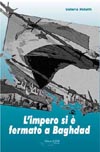February 21, 2007
International Laws exist to preserve the happiness, safety and lives of everyone on the Planet. Those who step outside the Law are criminals. Those who step outside International Law and in doing so kill huge numbers of innocent people must unequivocally be described as mass murderers and Americans who do so are subject to the death penalty under US Federal Law. MWC News Editor Shahram Vahdany alerted me to the latest estimates of horrendous Maternal Mortality in US-occupied Afghanistan (see MWC News ) and I have responded to this horrifying report with the following carefully documented analysis. Based on the latest UNICEF data (unlike in Orwell’s "1984", 2 plus 2 still equals 4 in much of the World) Bush Amerika has been involved for over 5 years in the mass murder of 145,000 Afghan women perinatally, 1.4 million Afghan females in total and 2.0 million under-5 year old Afghan infants as documented below in relation to (a) UNICEF demographic and mortality data and (b) International Law and moral culpability.
UNICEF demographic & mortality data for Afghanistan The following data derives from the latest UNICEF figures for Afghanistan: Annual births (2005): 1,441,000; Annual under-5 infant deaths (2005): 370,000; Population (2005): 29,863,000; Population under-5 (2005): 5,535,000; Annual under-5 death rate 6.68%; Under-5 infant deaths over 5.3 years of occupation: 1, 961,000 i.e. 2.0 million; Avoidable under-5 infant deaths: 90% of 1.96 million = 1.8 million. The Maternal Mortality Ratio is the annual number of deaths of women from pregnancy-related causes per 100,000 live births. The "Reported" column figures from UNICEF show country Reported figures that are not adjusted for underreporting and misclassification; the Adjusted Maternal Mortality Ratio values are adjusted for such underreporting and misclassification: Reported Maternal Mortality Ratio (2000): 1,600 per 100,000 live births; Adjusted Maternal Mortality Ratio (2000): 1,900 per 100,000 live births; Annual Maternal Deaths: 1,600 x 1,441,000/100,000 = 23,056 Adjusted Maternal Deaths: 1,900 x 1,441,000/100,000 = 27,379 A Maternal Mortality rate of 27,379/year means 75/day or 3.1/hour. An under-5 infant death rate of 370,000/year means 1014/day or 42 per hour or nearly one infant dying every minute. From a detailed 2 year analysis of UN Population Division demographic data for all countries in the World since 1950 it has been estimated that for impoverished and devastated Third World countries like Occupied Afghanistan the "under-5 infant deaths" are about 0.7 of the "total excess deaths" (excess deaths being avoidable deaths or deaths that should not have happened) (See Layperson’s Guide to Counting Iraq Deaths, MWC News ). Accordingly using the above figures we can estimate: Post-invasion under-5 infant deaths: 370,000/year x 5.3 years = 1.96 million; Post-invasion excess deaths: 1.96 million/0.7 = 2.8 million; Post-invasion excess female deaths (assuming 1:1 sex ratio): 1.4 million. Ultimately non-violent avoidable death derives from lack of life-sustaining requisites – shelter, food, potable water, medicine and medical care. The World Health Organization (WHO) provides the following estimates of Total Annual Health Expenditure Per Capita (2003) (in international dollars): $23 for Occupied Afghanistan as compared to $2,874 (Australia), $2,389 (UK), $5,711 (US). International Law & moral culpability Australian bioethicist and philosopher Professor Peter Singer (the De Camp Professor of Bioethics at Princeton University's Center for Human Values) is widely acclaimed as the world’s most influential philosopher (he essentially initiated the modern animal rights movement with the publication of his book "Animal Liberation" in 1975). He is also one of the World’s foremost bioethicists. Before considering International Law and the responsibility of the Occupiers of Occupied Afghanistan for their Conquered Subjects, let us consider what Professor Singer says about "active killing" and "passive killing" (his example in the following quotation being the "active euthanasia" of severely disabled infants by doctors as compared to "passive euthanasia" through withholding life-sustaining requisites) (see: Kuhse, H. & Singer, P. (1985), Should the Baby Live? The Problem of Handicapped Infants (Oxford University Press, Oxford): "Doctors who deliberately leave a baby to die when they have the awareness, the ability, and the opportunity to save the baby’s life, are just as morally responsible for the death as they would be if they had brought it about by a deliberate , positive action."
It is clear that passive killing, passive mass murder, passive holocaust-commission and passive genocide involve the same moral culpability as the corresponding active processes. Indeed you can be the judge of to what extent what is clearly an Afghan Holocaust, the Mass Avoidable Death (MAD) of Afghans, constitutes Genocide (albeit a Passive Genocide that nevertheless involves the same moral culpability as Active Genocide) by simply considering the precise wording of the relevant parts of the UN Genocide Convention.
Article I: The Contracting Parties confirm that genocide, whether committed in time of peace or in time of war, is a crime under international law which they undertake to prevent and to punish.
Article II: In the present Convention, genocide means any of the following acts committed with intent to destroy, in whole or in part, a national, ethnical, racial or religious group, as such:
(a) Killing members of the group;
(b) Causing serious bodily or mental harm to members of the group;
(c) Deliberately inflicting on the group conditions of life calculated to bring about its physical destruction in whole or in part;
(d) Imposing measures intended to prevent births within the group;
(e) Forcibly transferring children of the group to another group.
Article III: The following acts shall be punishable:
(a) Genocide;
(b) Conspiracy to commit genocide;
(c) Direct and public incitement to commit genocide;
(d) Attempt to commit genocide;
(e) Complicity in genocide.
Article IV: Persons committing genocide or any of the other acts enumerated in article III shall be punished, whether they are constitutionally responsible rulers, public officials or private individuals.
International Law as enshrined in the Geneva Convention relative to the Protection of Civilian Persons in Time of War is absolutely clear about the responsibility of the Occupier to do everything "to the fullest extent of the means available to it" to preserve the health and lives of its Conquered subjects (Articles 55 and 56). Furthermore Article 38 part 5 specifies exceptional efforts are to be made by the Occupier in relation to infants, children, mothers and pregnant women: "Children under fifteen years, pregnant women and mothers of children under seven years shall benefit by any preferential treatment to the same extent as the nationals of the State concerned." These particular Articles are quoted in full below so that you can quote them to your family, friends and associates,
Article 38
With the exception of special measures authorized by the present Convention, in particular by Articles 27 and 41 thereof, the situation of protected persons shall continue to be regulated, in principle, by the provisions concerning aliens in time of peace. In any case, the following rights shall be granted to them:
1. They shall be enabled to receive the individual or collective relief that may be sent to them.
2. They shall, if their state of health so requires, receive medical attention and hospital treatment to the same extent as the nationals of the State concerned.
3. They shall be allowed to practise their religion and to receive spiritual assistance from ministers of their faith.
4. If they reside in an area particularly exposed to the dangers of war, they shall be authorized to move from that area to the same extent as the nationals of the State concerned.
5. Children under fifteen years, pregnant women and mothers of children under seven years shall benefit by any preferential treatment to the same extent as the nationals of the State concerned.
Article 55
To the fullest extent of the means available to it the Occupying Power has the duty of ensuring the food and medical supplies of the population; it should, in particular, bring in the necessary foodstuffs, medical stores and other articles if the resources of the occupied territory are inadequate.
The Occupying Power may not requisition foodstuffs, articles or medical supplies available in the occupied territory, except for use by the occupation forces and administration personnel, and then only if the requirements of the civilian population have been taken into account. Subject to the provisions of other international Conventions, the Occupying Power shall make arrangements to ensure that fair value is paid for any requisitioned goods.
The Protecting Power shall, at any time, be at liberty to verify the state of the food and medical supplies in occupied territories, except where temporary restrictions are made necessary by imperative military requirements.
Article 56
To the fullest extent of the means available to it, the Occupying Power has the duty of ensuring and maintaining, with the cooperation of national and local authorities, the medical and hospital establishments and services, public health and hygiene in the occupied territory, with particular reference to the adoption and application of the prophylactic and preventive measures necessary to combat the spread of contagious diseases and epidemics. Medical personnel of all categories shall be allowed to carry out their duties.
If new hospitals are set up in occupied territory and if the competent organs of the occupied State are not operating there, the occupying authorities shall, if necessary, grant them the recognition provided for in Article 18. In similar circumstances, the occupying authorities shall also grant recognition to hospital personnel and transport vehicles under the provisions of Articles 20 and 21.
In adopting measures of health and hygiene and in their implementation, the Occupying Power shall take into consideration the moral and ethical susceptibilities of the population of the occupied territory.
|

















